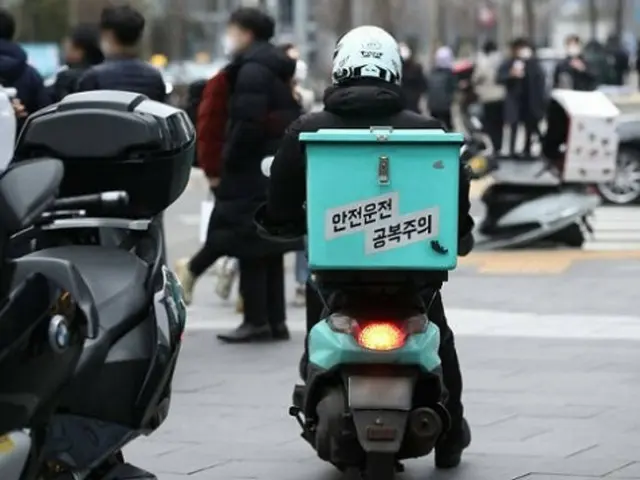The Ministry of Employment and Labor and the Korea Employment Information Service conducted a nationwide survey of 50,000 people aged 15 to 69 last year to conduct a survey on the actual situation of platform workers in 2023.
The number of people working on the platform last year was 883,000, up 11.1% (88,000) from the previous year (795,000). In 2021, the number is expected to increase to 66
Platform workers are people who receive work through the intermediation or mediation of online platforms such as smartphone apps and websites, and earn income through such work.
As technology advances, the number of platforms increases and people have a higher preference for more flexible work styles, so the number of platform workers is on the rise.
In this survey, respondents cited the following as their motivations for starting platform work: 'Being able to earn more' (36.1%), 'Being able to choose the hours and dates I work' (20.9%), and '
Reasons cited included 'Workplace/organisational life doesn't suit me' (10.2%) and 'To be able to balance work with housework, school work, childcare etc' (7.5%).
By occupation, the largest number of people were in 'delivery and driving' with 485,000 people, followed by 'professional services' such as education and consultation.
144,000 people, 87,000 people in 'simple computer work' such as data entry, 52,000 people in 'housework and caregiving', 50,000 people in 'creative activities' such as design, 41,000 people in 'IT services'
As the COVID-19 pandemic ended, the number of delivery and driving workers decreased by 5.5% compared to the previous year, and the number of housekeeping and care workers also decreased by 1.9% despite an increase in demand.
Meanwhile, the remaining fields saw double-digit increases. Although there were more males, the proportion of females also increased from 25.8% last year to 29.6%. By age, the largest number of people were in their 30s at 28.7%, followed by those in their 40s at 29.6%.
The order of respondents was 26.9% in their 10s, 20.2% in their 50s, and 13.8% in their 20s. Among all platform workers, 55.6% were "main occupation." Main occupation refers to those who work in the platform industry.
This applies when the income of a platform worker accounts for 25-50% of the total income or works 10-20 hours a week.
The 'side job type', where you do something different, accounted for 21.8%; and the 'intermittent participation type', where your income accounted for less than 25% of your total income or you worked less than 10 hours a week, accounted for 22.6%.
Compared to the previous year, the proportion of people with main occupations decreased by 2.1%, while the proportion of people with part-time occupations and intermittent participation increased slightly.
Last year, platform workers worked an average of 14.4 days a month, 6.2 hours a day, earning 1,452,000 won (about 141,285 yen) a month.
Compared to the previous year, the number of hours worked and monthly wages (1,464,000 won (US$1,471) in 2022) both decreased slightly, but this is thought to be due to an increase in the number of people who work occasionally rather than full-time.
Platform workers have reported that while working, they face a number of problems, including 'demands for work that are not specified in the contract' (12.2%), 'health and safety risks and insecurity' (11.9%), and 'unilateral changes to the contract' (10.
In addition, when transferring to another job, the fact that their work history was not properly recognized (9.7%) was also cited as a barrier, and in some cases, payment of wages was delayed (9.5%).
"The number of platform workers is expected to continue to increase, but they still face many challenges, including unfair treatment," said Kwon Chang-jun, a labor reform policy officer at the Ministry of Employment and Labor.
"We will proactively work to establish a law to support the weaker working people (provisional title), and will promote the preparation of standard contracts, the establishment of places of relaxation, and support for conflict resolution," he said.
2024/08/05 20:49 KST
Copyrights(C) Herald wowkorea.jp 83

